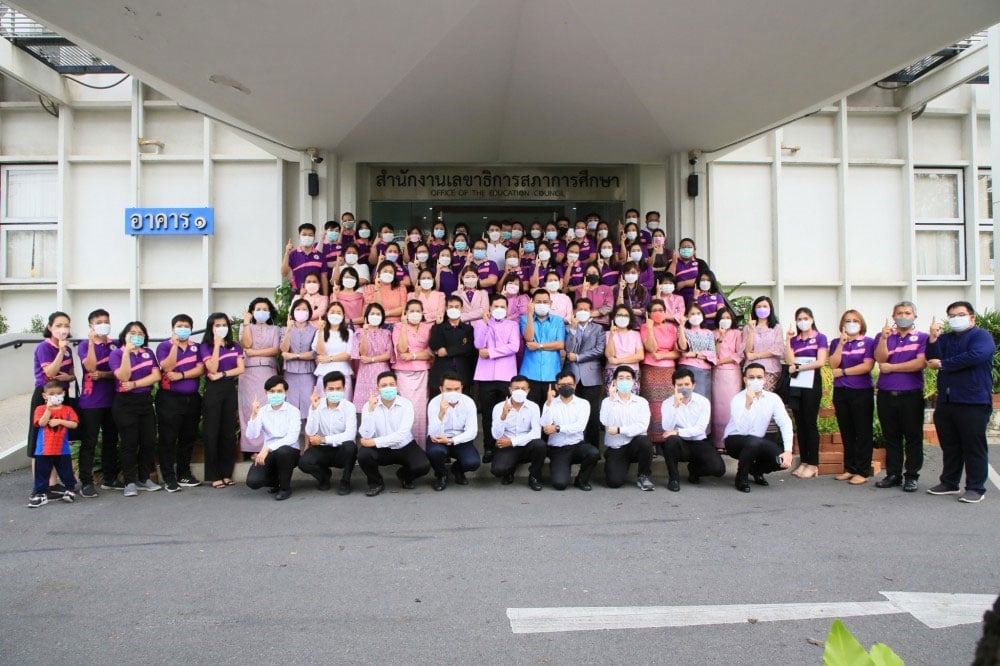Approaching the 64th Anniversary of OEC: Directing, Thinking Together, Keeping Pace with the world
On February 14, 2022, the Office of the Education Council (OEC), which is the leading national organization for Education Policy and Standards, celebrated its 63rd anniversary. On this occasion, the office organized a special On-line and On-Site conference of several prominent educational leaders, including Dr. Khunying Kalaya Sophonpanich, the Deputy Minister of Education, who chaired the conference, together with the heads of main organization under the Ministry of Education, and leaders of various educational associations including former executives at the Kamhaeng Palangkul Room. Also in attendance were officers of the Office of the Education Council. The assembly was organized in compliance with the Covid-19 Restrictions.
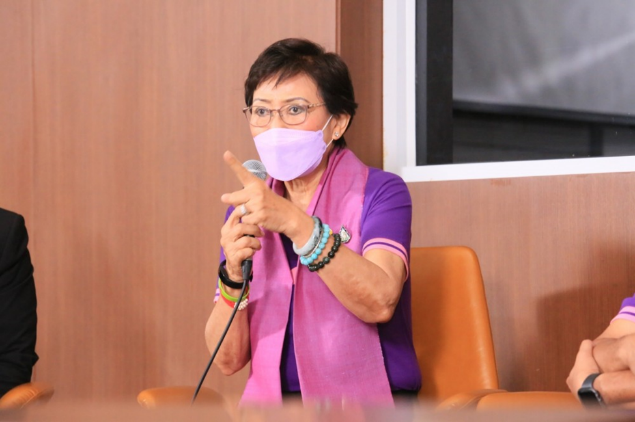
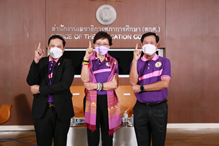
The topic of the conference was “The Education Council as a Compass for National Education: how education can create a high performance workforce that can cope with rapid change and help mobilize the Thai economy in the Global Arena”. The speakers were Dr. Khunying Kalaya Sophonpanich, Dr. Amnart Wichayanuwat, advisor to the Minister of Education and former Secretary-General of the Education Council, and Dr. Atthaphon Sangkhawasee, the current Secretary-General, as the moderator. The talk was broadcast live via Facebook: OEC News สภาการศึกษา which interested person can re-watch the conference via the said channel.
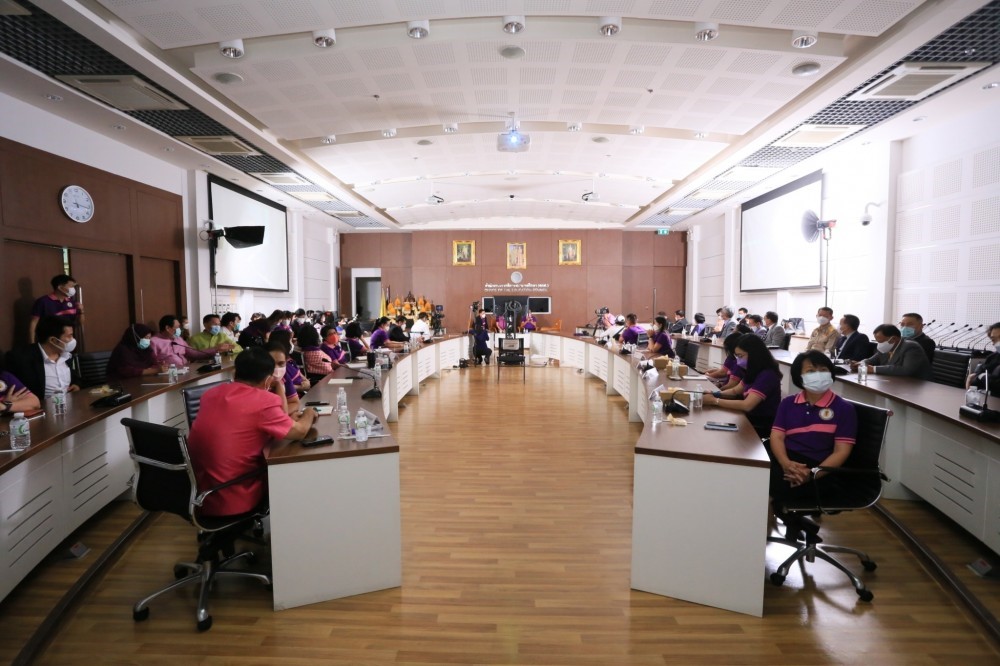
The conference addressed three themes: Chee Thit (Directing); Kid Ruam Gun (Thinking together); and Kao Thun Lok (Keeping pace with the world).
Directing: Anticipating and reacting to the nature and speed of change. How to live with Volatility, Uncertainty, Complexity and Ambiguity (a ‘VUCA World’).
In a VUCA World everything can change unpredictably. In such a world, the Office of the Education Council cannot work alone but it has to listen to and absorb valuable experiences from educational experts so that it can cope with the present situation of the world. At the fundamental level, Thai youth should receive education that develops their cognitive and affective capacities. At the same time, they must be helped to take advantage of practical methods such as ‘unplugged coding’ which is one of the main education policies of Ministry of Education. The overall aim should be to produce Thai citizens who can think systematically and independently to take decisions and solve the problems of daily life for themselves.
Thinking together: The Office of the Education Council must be able to ‘think
outside the box’. It must also use National Coding Policy as part of its work. Thai Education must produce a workforce which has skills matched to the labour market, and can generate modern entrepreneurs. The implementation of the Competency Curriculum in Thai Basic Education this year will be the focus for the change. Young people must learn to become independent and lighten burden upon their parents particularly the family affairs, can create benefits to his/her family and society and know how to utilize and develop their basic knowledge on Science Technology Innovation (STI). All of this must be done with the close cooperation of all education and social sectors in order to produce 4.0 Quality Thai Citizen and World Quality Citizen.
Keeping pace with the world: in the last section of the talk, speakers urged the audience to recognize that new trends in digital careers are emerging every day. Conversely, some present careers may disappear at any time and be replaced by digital substitutes and A.I. However, these cannot compete with the human workforce in terms of emotional engagement and concern. STEM Education, which is the leading trend of education today, is not enough for the world of work, particularly in our country. The acronym STEM must be augmented with the letter “A” to become ‘STEAM education’. ‘A’ represents the ‘Art of living’. Future Thai workforces must have not only knowledge and competency fit for their work, but also the Art of living, which includes imagination, culture and benevolent to help them working with other people with respect and peace. STEAM Education and Ministry of Education’s Coding Policy shall help upgrading skills of Thai workforces in order to compete with other foreign countries with pride.
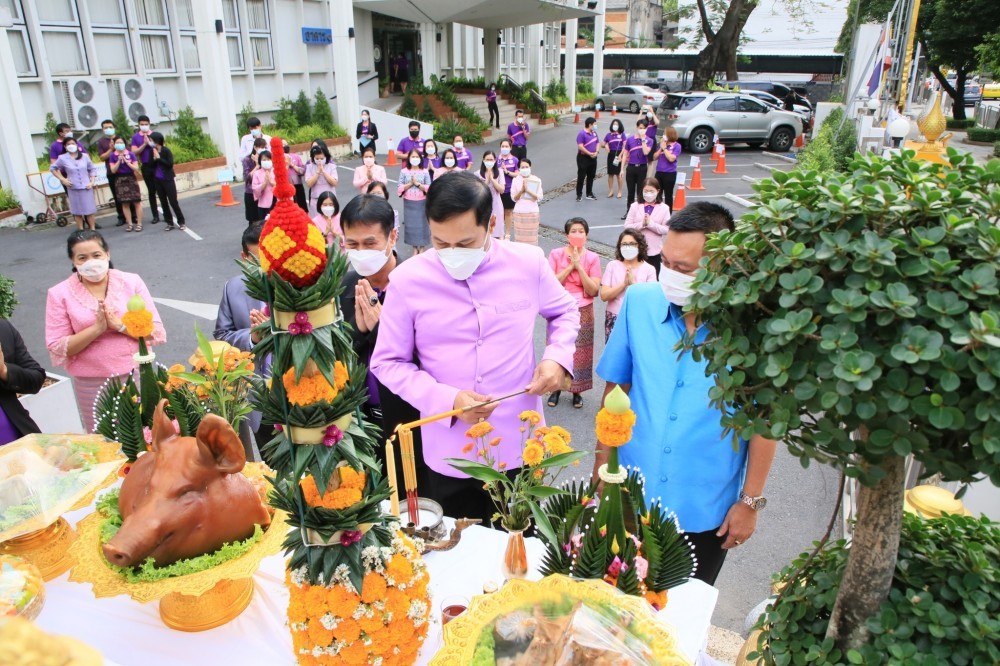
The Office of the Education Council, under the leadership of Dr. Atthaphon Sangkhawasee, the present Secretary-General, is entering its 64th year. Dr. Sangkawasee presented his vision for ‘Thai Youth in 2025 and their role in the Thai Economy’. His vision focuses on the idea that future trends in education and the world of work will run in the same direction. His vision sets the agenda for the work of the Office of the Education Council which surely will produce a positive and substantial impact to the society.
From the researches of the Office of the Education Council in 2021, it was found that 14 million students in Thailand at every level of education cannot go to school during the Covid-19 pandemic. This situation causes the loss of learning for the students, and it has to be solved immediately through the development of teachers. Teachers shall be equipped with new skills for the new normal of learning skills (Online Teaching Skill) so that they can pass knowledge to students.
The National Education Council has drafted a new National Education Act B.E ..., which has been scrutinised in the parliament. The Act B.E. … would help transforming learners’ skills.
It has included the acceleration of early childhood education, the Upskill and Reskill for the Generations: X, Y, and Z which is the prominent population of the country.
Appproaching the 64th anniversary, Office of the Education Council will accelerate its work in order to strengthen Thai education. The OEC focuses on the involvement of all sectors for the accomplishment of ‘Thai Youth in 2025 and their role in the Thai Economy’. In doing so, the office has revised its research policies in order to walk in the same line of WEF research and has determined ‘Skill Mapping’ for human development in order to mobilize the country competitiveness in the global arena.
Office of the Education Council has intended to change its role from policy unit to National Education Compass. The new role will ensure parents and guardians that although Thai education has several dimensions, the ultimate outcome is that all learners have both academic skills and life skills. Thai youth must be able to think critically and live by themselves. The office determines to mobilize the education reform in accordance with the country re-opening after the pandemic unravel and also to support the Upskill and Reskill of population nationwide and the support of Startup in order to attract investment from foreign countries.
Providing educational policies and recommendations is a challenging mission of the office. Being able to ‘think outside the box’ will improve our work so that our policy will be up-to-date and fit with the pandemic situation and the new normal of learning.




